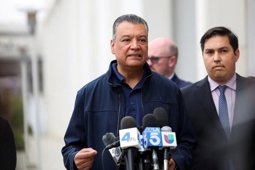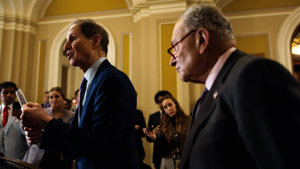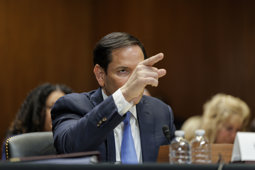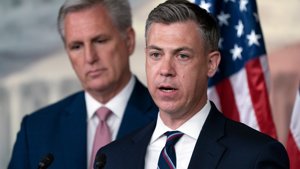
Courts, Congress Clash Over US Immigration System
Legal battles, new legislation, and criminal cases expose deep divisions and challenges in the US immigration system.
Judges, Lawyers, and a Migrant’s Fate
America’s contentious immigration debate escalated this week as federal courts, lawmakers, and enforcement agencies confronted a wave of new legal challenges, congressional actions, and criminal investigations—all revealing the complexity and volatility of the US immigration system.
In Maryland, attorneys for Salvadoran migrant Kilmar Abrego Garcia filed an emergency motion on Thursday urging a federal judge to block his deportation and order his return to Maryland as he awaits trial in Tennessee. Garcia’s legal saga began after his wrongful deportation in March—a move the Trump administration called an “administrative error.” Despite a federal court and Supreme Court order mandating his return, Garcia spent months fighting for reentry, ultimately winning a judge’s order for his immediate release and return. His lawyers argue further deportation would violate prior court rulings and urge the court to “act swiftly” to keep him on US soil.
Meanwhile, the Supreme Court tightened the legal window for migrants to challenge deportations, ruling that a 30-day deadline is triggered once a final removal order is issued. The closely divided decision involved Jamaican national Pierre Riley, who was unable to appeal his deportation after missing the statutory deadline. Writing for the majority, Justice Samuel Alito acknowledged concerns but affirmed Congress’s intent for “streamlined” procedures. Dissenting justices argued the rule was illogical, with Justice Sonia Sotomayor contending it created an “absurdity” that could leave migrants unable to contest removal orders effectively.
Congress Moves on Deportation, While Corruption and Enforcement Scandals Erupt
On Capitol Hill, a bill mandating the deportation of illegal immigrants convicted of drunk driving advanced with bipartisan support. Sponsored by Rep. Barry Moore, R-Ala., the legislation passed the House 246-160, with 37 Democrats joining all Republicans in favor. “If you are a guest in this country, and you break our laws and put American lives at risk by driving under the influence, there will be consequences,” Moore declared. Critics countered that the bill stokes fear without offering real reform, but the measure now awaits consideration in the Senate and would need President Donald Trump’s signature to become law.
Simultaneously, the system’s integrity faced new scrutiny after a Pennsylvania-based immigration officer, Amara Dukuly, was arrested and charged with accepting bribes from immigrants seeking legal status. Dukuly, employed by US Citizenship and Immigration Services (USCIS), allegedly solicited payments over nearly a decade, despite lacking the authority to fulfill his promises. The case, investigated by the Department of Homeland Security and FBI, highlights the risks of abuse within federal agencies tasked with enforcing immigration policy.
Enforcement on the Ground: Repeat Offenders and Agency Response
Enforcement challenges also remain acute. In Texas, authorities apprehended Jamil Bahlouli, an Iranian national who reentered the US illegally after a previous deportation and then refused to comply with ICE officers executing a 2020 removal order. Bahlouli was convicted of illegal re-entry, released after serving his sentence, but failed to report to immigration authorities as required. He now faces additional charges and up to four years in prison, with ICE continuing to investigate the case.
These intertwined legal, legislative, and enforcement developments underscore the ongoing struggle to balance public safety, due process, and accountability in US immigration. As courts issue new precedents, lawmakers debate fresh restrictions, and criminal cases reveal vulnerabilities within the system, the path forward remains the subject of fierce national debate—one likely to shape American policy for years to come.






